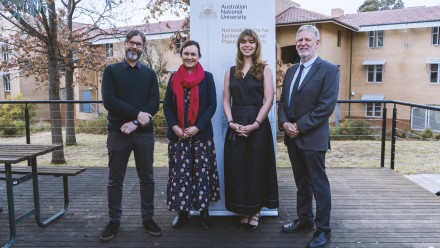PHC in Australia: Towards a more sustainable and equitable health care system
Numerous editions of the Australian Government’s Intergenerational Report have consistently shown that health care is the fastest growing component of the Commonwealth Government’s outlays. Over the next forty years, the federal government’s expenditure on health is expected to almost double in terms of share of GDP. Not surprisingly, one of the central aims for policy advisers is to make the health care system more sustainable.
Policy advisers in Australia, and internationally, are placing greater importance on the role of primary care to deliver a more sustainable health care system. A well-functioning primary care system is widely regarded as an essential element of a high performing health care system. The recently announced Medical Homes trial is a good example of the way the Australian government is seeking to reform primary care and place it at the centre of the health care system. In part, such reforms are driven by the promise of better management of chronic diseases at earlier stages of disease in order to prevent further declines in health status, unnecessary hospitalisations and escalating health care costs.
With sustainability at the forefront of the policy debate, there is an urgent need to develop a better understanding of the drivers of health expenditure growth, and in particular the relationship between the role and functioning of primary care and other health care sectors.
However, health care reforms aimed at making the system more financially sustainable do so at the cost of fairness. The proposed mandatory co-payments for general practice consultations announced in the 2014 Federal Budget are a good example of this. On the one hand, the government was making the argument that the proposal would make Medicare expenditure more sustainable, but opponents argued that this would reduce access to general practitioners, particularly among low income people and the elderly. The ensuing debate was hotly contested, ideologically driven and largely absent of hard evidence. Indeed, due to the controversial nature of the 2014 co-payments, the government eventually abandoned its planned reforms altogether. One of the essential problems for Government is that the role primary care can play in making the Australian health care system more efficient and equitable is often unclear.
This report highlights the key results of one of the major work themes undertaken as part of the Centre for Research Excellence on the Financing and Economics (REFinE) of Primary Health Care. It reports on a number of projects that have developed our understanding of the drivers of health care use and expenditure. There are two themes to this report that seek to deliver a better understanding of,
- Drivers of health care costs and use (Part A)
- Access and equity in Australia’s health care system (Part B)
In developing this understanding, it examines the interrelationships between primary care and other sectors of the Australian health care system, including hospital care, specialist care and emergency department care. In particular, it will address the relationship between primary health care and the short and medium term use of other health care services, particularly the substitution between general practice and specialist care; and between general practice and emergency department and admitted hospital care. It will report on our investigations of the distribution of health expenditures and determine to what extent health expenditures are associated with patient demographics, socioeconomic and health status.
This report draws on a number of papers that have been developed as part of the work undertaken at the Centre for Research Excellence on the Financing and Economics of Primary Care (REFinE). Most of these papers have been published, others are in the final stages of development. Collectively, these provide a greater understanding of the cost trajectories of people with chronic diseases.
Partnerships
- Kees van Gool, Centre for Health Economics Research and Evaluation, University of Technology Sydney
- Jane Hall, Centre for Health Economics Research and Evaluation, University of Technology Sydney
- the REFinE Team







